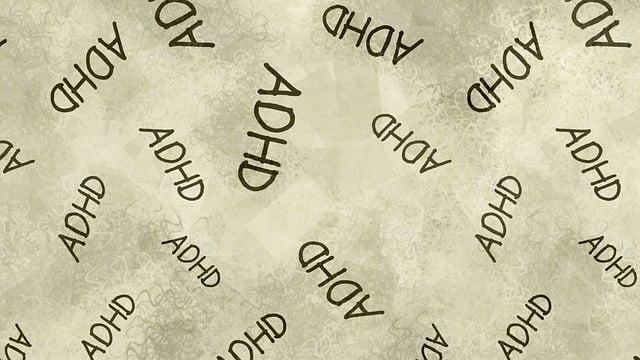Aurora Spiritual-Religious Issues Therapy provides immediate crisis intervention using a unique blend of structured strategies and spiritual principles, addressing both mental and emotional aspects. This approach combines evidence-based techniques with faith-based support to offer clients purpose, hope, and inner strength during crises. By integrating social skills training, mental wellness coaching, and community outreach programs, Aurora Therapy equips individuals with effective coping mechanisms, enhances risk assessment by considering spiritual factors, and promotes long-term emotional healing. Post-crisis care focuses on policy advocacy, resilience building, and safe space creation for processing traumatic experiences.
In moments of crisis, effective intervention can be a lifeline. This article explores comprehensive strategies for mental health professionals, focusing on both practical techniques and holistic approaches. We delve into the foundational role of understanding crisis intervention as a cornerstone of support, examining the unique contribution of Aurora Spiritual-Religious Issues Therapy. Additionally, we discuss post-crisis care, emphasizing resilience-building and overall well-being. Essential guidance for professionals aiming to make a meaningful impact during times of turmoil.
- Understanding Crisis Intervention: A Cornerstone of Mental Health Support
- The Role of Aurora Spiritual-Religious Issues Therapy in Crisis Interventions
- Practical Strategies for Effective Crisis Intervention
- Post-Crisis Care and Recovery: Nurturing Resilience and Well-being
Understanding Crisis Intervention: A Cornerstone of Mental Health Support

Crisis intervention is a critical component of mental health support, offering immediate assistance to individuals facing acute distress or traumatic events. It involves a structured yet flexible approach to help people navigate and overcome their immediate challenges. The primary goal is to provide a safe space for emotional healing processes, ensuring the individual feels supported and understood.
In the context of Aurora Spiritual-Religious Issues Therapy, crisis intervention strategies are tailored to address not only mental health concerns but also spiritual and religious aspects that may be integral to an individual’s well-being. This holistic approach incorporates techniques from various fields, including social skills training and mental wellness coaching programs development, to empower individuals with coping mechanisms. By leveraging these tools, Aurora Spiritual-Religious Issues Therapy fosters resilience and promotes lasting positive change in the lives of those seeking support.
The Role of Aurora Spiritual-Religious Issues Therapy in Crisis Interventions

In crisis intervention settings, Aurora Spiritual-Religious Issues Therapy offers a unique and valuable approach to addressing individuals’ psychological distress. This therapy recognizes that spiritual beliefs and religious practices can significantly impact one’s emotional well-being and coping mechanisms. By integrating faith-based principles with evidence-based therapeutic techniques, it provides clients with a sense of purpose, hope, and inner strength during challenging times. The role of Aurora Spiritual-Religious Issues Therapy is to facilitate a safe space for individuals to explore their spiritual struggles, fostering positive thinking and resilience-building.
This therapeutic method can be particularly beneficial in situations where traditional talk therapy might not adequately address the client’s crisis. By engaging with spiritual and religious aspects, mental health professionals can enhance their risk assessment capabilities, as these factors may influence an individual’s vulnerability or coping strategies. Through this approach, professionals empower clients to draw upon their spiritual resources, encouraging self-reflection and personal growth while navigating the crisis.
Practical Strategies for Effective Crisis Intervention

In the face of crises, whether personal or collective, effective crisis intervention strategies are essential for providing immediate support and guiding individuals towards long-term healing. Professional therapists, such as those specializing in Aurora spiritual-religious issues therapy, employ a range of practical techniques to facilitate this process. One key strategy is cultivating emotional intelligence—the ability to recognize and manage one’s own emotions while empathizing with others. This skill enables interveners to connect deeply with individuals in crisis, understand their unique experiences, and offer tailored support.
Additionally, community outreach program implementation plays a vital role in addressing broader crises. By engaging the community, therapists can create safety nets that extend beyond individual therapy sessions. These programs focus on building resilience, fostering social connections, and promoting anxiety relief through collective support networks. Such initiatives recognize that crisis intervention is not just about one-on-one therapy but also about creating a supportive environment where individuals feel understood and empowered to navigate challenging situations.
Post-Crisis Care and Recovery: Nurturing Resilience and Well-being

Post-crisis care and recovery play a pivotal role in fostering resilience and well-being among individuals who have experienced traumatic events. In the aftermath of a crisis, providing emotional support and practical assistance is essential to help individuals navigate their journey towards healing. This phase involves creating safe spaces where individuals can express their feelings, process their experiences, and begin to rebuild their lives.
Aurora Spiritual-Religious Issues Therapy offers valuable tools for post-crisis care, focusing on mental health policy analysis and advocacy to ensure accessible and effective support systems. By integrating various therapeutic approaches, this therapy facilitates emotional regulation, which is crucial in preventing burnout and promoting long-term recovery. Through nurturing resilience, individuals can develop coping strategies that enhance their overall well-being, enabling them to face future challenges with greater strength and adaptability.
Crisis intervention is a multifaceted field, requiring a nuanced approach that considers both mental health and spiritual-religious aspects. As highlighted by the discussion on Aurora Spiritual-Religious Issues Therapy, integrating these dimensions can significantly enhance support strategies. By understanding crisis from a holistic perspective and employing practical tools, we can foster resilience and promote well-being. The article’s key takeaways emphasize the importance of comprehensive care, offering valuable insights for professionals aiming to navigate and resolve crises effectively.











